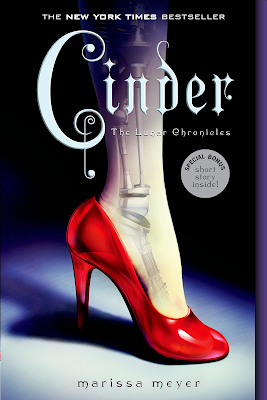Review: The Dragon Princess
The fairy tale retelling/reimagining genre is huge in novel world right now. I realize that most of my reviews cover books in this genre, but putting the word "princess" in the title or having a princess as a protagonist is still enough to compel me to read a book. When I wrote my last novella, The Stolen Jewel, I didn't want to make another adaptation because I wanted to tell my own original fairy tale. In the case of The Dragon Princess by Lichelle Slater (not to be confused with The Last Dragon Princess, which I also reviewed), I would say that the subtitle "Sleeping Beauty Reimagined" is a detriment. I've read other "Sleeping Beauty" adaptations that stray far from the original fairy tale, but here, it felt so forced that the story would have actually benefited from not including the reference at all. The Forgotten Kingdom series stands perfectly well on its own as an original princess fantasy series.
The Dragon Princess starts very slow and took a while to pique my interest. It tells the story of Princess Elisa, a girl who was cursed by a wicked faery to turn into a dragon by her 18th birthday. Elisa's parents take every precaution to prevent this ill fate, including covering her scales with gloves training her to conceal her feelings, and giving her sisters Dahlia and Marigold special treatment over her. If you think this sounds a lot like Frozen, you wouldn't be too far off, especially when it comes to the twist ending. The problem is that the story of a cursed princess being trapped in her castle by overprotective parents is something we've all seen hundreds of times. It took roughly two-thirds of the book before it had anything new to contribute to the concept. However, when this book gets good, it gets really good.
After her parents surprise her with an engagement to a too-good-to-be-true prince named Gerard who offers to help with her curse, Elisa suddenly decides to take the matter into her own hands. She journeys off to find a fae who can help her and discovers a faery boy named Dormir. That's where the "Sleeping Beauty" aspect comes into play. Dormir has an odd condition that causes him to fall asleep when he is stressed, and the only way to wake him is with a kiss. This happens to him more than once and never comes off as anything other than comical. Elisa's story would have been exactly the same whether Dormir had the condition or not. The "Sleeping Beauty" reference is clear enough without needing to caption the book "Sleeping Beauty Reimagined." In the end, it's really Elisa's story, not Dormir's.
When Elisa finally does find the faery queen, the story rapidly sets into action. Elisa learns that she was lied to her entire life and that her curse is not what she thinks it is. She decides to embrace her true self, discovers a power she never knew she had, and sets out to save her family and her kingdom from a new threat. The last third of the book felt like another story entirely. The princess tropes ended, and the creativity of Lichelle Slater's imagination came to life. Suddenly, I was savoring every page and couldn't wait to see what was going to happen next. I wish the rest of the book had been this exciting. Like Elisa, it felt as though the beginning of the book was struggling to be something it wasn't.
Overall, The Dragon Princess is a compelling and enjoyable read if you can make it through the slow monotony of the first half. It would have been even better without the forced fairy tale references. I also wish Elisa had been a bit more consistent in her personality. The decision to stop being passive and rescue herself seemed to come out of nowhere. As soon as she went from a passive heroine to an active one, the book became a real page-turner. Since this is the first in a series, I would like to think that the next book will start just as compelling as this one ended, but I wish the series would stray from trying to use the fairy tale reimagining/retelling genre. Lichelle is incredibly talented at creating her own original characters and worlds and does not need to rely on older stories in order to build an audience.












Comments